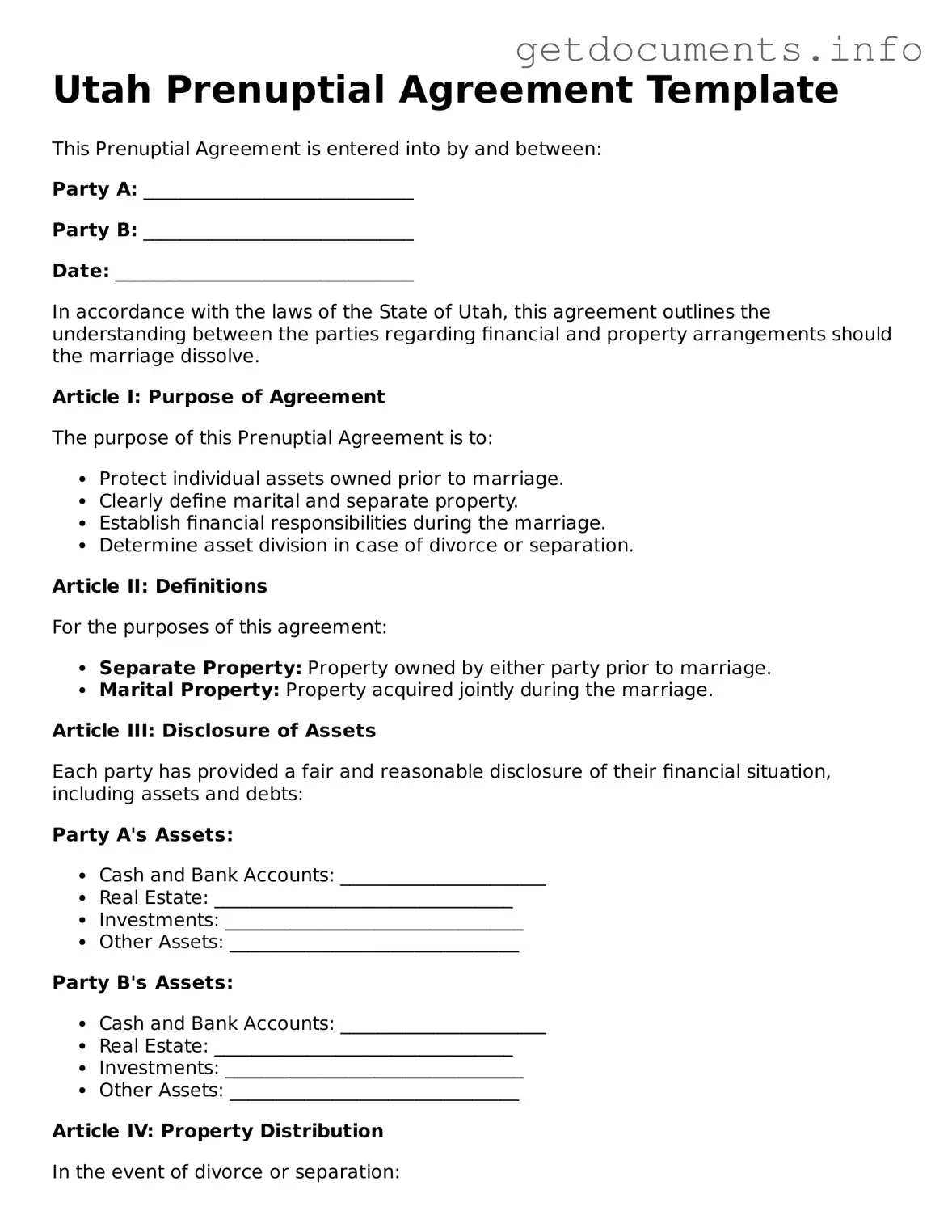Free Prenuptial Agreement Template for Utah
A Prenuptial Agreement is a legal document that couples create before marriage to outline the division of assets and financial responsibilities in the event of a divorce. In Utah, this form helps protect individual interests and provides clarity for both parties. To get started, fill out the form by clicking the button below.
Access Prenuptial Agreement Editor

Free Prenuptial Agreement Template for Utah
Access Prenuptial Agreement Editor
Got places to be? Complete the form fast
Fill out Prenuptial Agreement online and avoid printing or scanning.
Access Prenuptial Agreement Editor
or
⇩ PDF File
